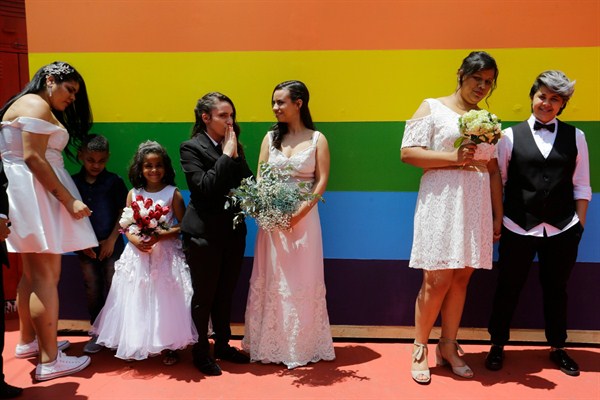Brazil’s highest court officially ruled last week that homophobia and transphobia should be criminalized until Congress passes a law on the subject. The verdict was a much-needed victory for Brazil’s LGBT community, which has faced an increasingly difficult climate under far-right President Jair Bolsonaro. In an email interview with WPR, James Green, the Carlos Manuel de Cespedes Professor of Latin American History and director of the Brazil Initiative at Brown University, discusses the challenges facing LGBT Brazilians and the significance of the court’s decision.
World Politics Review: How has the situation facing LGBT Brazilians changed over the past few years? How much of this is attributable to the policies and rhetoric of President Jair Bolosnaro?
James Green: There is no question that the situation for LGBTQ+ people in Brazil has gotten worse in many aspects since the impeachment of President Dilma Rousseff, of the left-wing Workers’ Party, in 2016. Certainly, there were many problems implementing policies in favor of LGBTQ+ rights during Rousseff’s presidency and that of her predecessor, Luiz Inacio Lula da Silva. But over the past three years, the polarization in the country between the left and the right has deepened, and right-wing forces are increasingly seeing the advances in LGBTQ+ rights since the end of the dictatorship—more visibility and openness, expanded notions of civil rights, some changes in the law—as negative and the fault of the left’s policies. For example, Jean Wyllys, an openly gay member of Congress, has been increasingly targeted by the far right, which circulated fake news about him and his policies through social media and used him as a stand-in for all that was supposedly wrong with the alleged permissiveness of the left in power. Wyllys finally fled the country earlier this year after receiving death threats.

